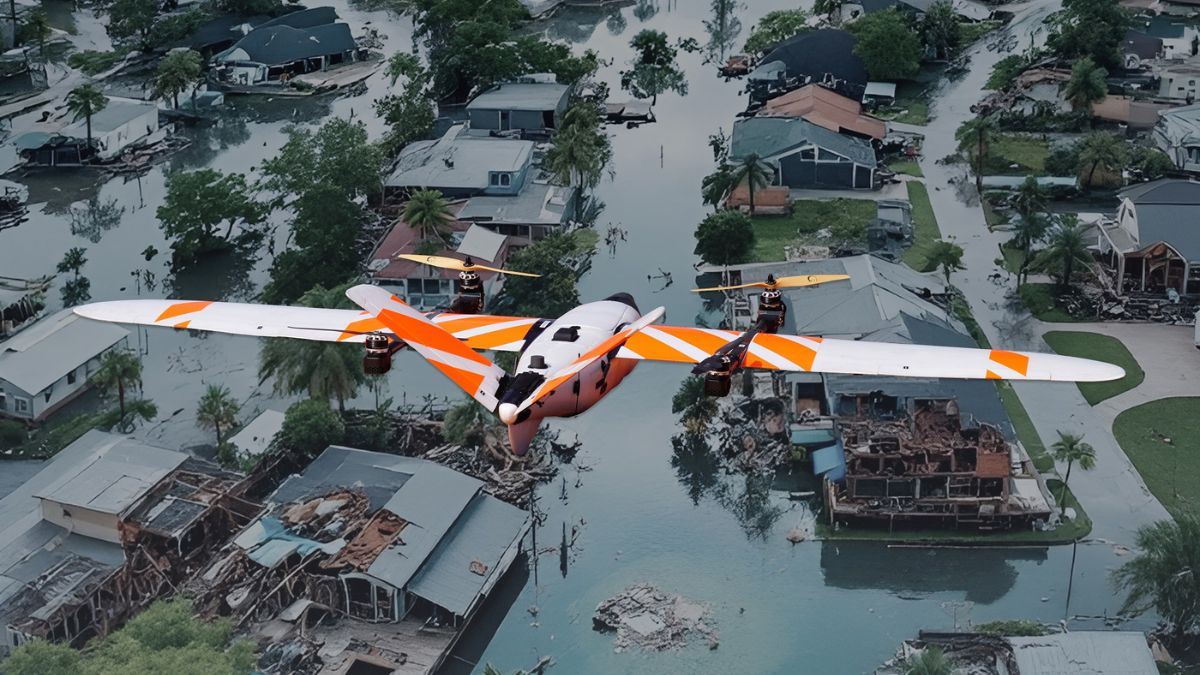India holds tremendous potential for drone applications and services: Israeli firm

Israeli drone connectivity company Elsight finds tremendous potential for drone applications and services in India.
As per the company’s CEO Yoav Amitai, drone applications and services are very much important in India due to the country’s vast geography and inconsistent transportation infrastructure.
In an interaction with THE WEEK, Amitai observed that the diverse landscapes in under-developed regions and crowded urban areas in the metropolitan centres of the country were creating challenges for drone operations.
ALSO READ | Why militaries across the world are grappling to fight unmanned aerial vehicle challenge
Hence, he explained that drone service enablers like them could help facilitate successful drone operations, even in the most complex environments and surroundings.
Elsight has already started working with several drone manufacturers and operators in India and provides them with their Halo connectivity platform.
This platform provides Beyond Visual Line of Site (BVLOS) connectivity to them, which helps operators streamline drone operations as they need to use the UAVs in crowded urban spaces and diverse landscapes, as well as in vast remote locations with under-developed infrastructure.
BVLOS connectivity refers to the operation of UAVs at distances where the pilot can no longer observe the aircraft with the naked eye.
The company’s Halo platform is helping drone operators to ensure that the BVLOS connection between the drone and the ground control system (GCS) is continuous.
“An unmanned aerial vehicle can come down if there is even one second of interruption. Our platform enables continuous transmission of data, such as telemetry and video, which are both essential for inspections, surveillance and other applications,” Amitai told THE WEEK.
He further explained that the BVLOS was the third and most important range of drone operations.
The first range is referred to as Visual Line of Sight (VLOS), where the aircraft is always directly visible to the pilot. The second is called Extended Visual Line of Sight (EVLOS), which enhances the range of drone operations by using one or more trained observers with radio control along the flight path. These additional personnel ensure that the drone is always within direct sight of a human being and can communicate with the pilot. While EVLOS improves on the standard VLOS, it is limited by practicality and the logistics of chaining together multiple human observation abilities over large distances.
ALSO READ | Different types of drones: What India should focus on
The company’s technology also assists drone operators in simultaneously supervising and controlling multiple UAVs from a Drone Network Operation Center (DNOC), exponentially increasing the possible UAV applications and distance.
“BVLOS operations allow drones to achieve more in a single flight and ultimately enable operators to expand from limited numbers of piloted drone missions to long-distance, fully autonomous drone fleets, providing maximum cost-effectiveness,” he explained.
“In many regions of India, especially underdeveloped areas as well as crowded urban spaces, drones can provide faster and more efficient access than available transportation alternatives.
This is important for the activities of first responders in emergency situations, such as the delivery of medical supplies after a natural disaster. Looking forward, commercial applications—drone deliveries in particular—hold the potential to reinvent supply channels for many parts of India,” Amitai adds.
The company was recently chosen to participate in the DRISTI (Dual-use Robust India-Israel High-Tech Innovation) program.
This transformative initiative aims to strengthen ties between India and Israel, driving innovation, strategic partnerships, and cutting-edge technological advancements across critical sectors such as defence, artificial intelligence (AI), machine learning (ML), robotics, drones, and more.
Since 2020, this Israeli firm has been embedding its Halo platform and BVLOS connectivity into drone manufacturers and service operators across the world, such as ACSL in Japan, SpeedAero in South America, and Lockheed Martin in the United States.
ALSO READ | Indian Army's big leap in drone warfare: VTOL UAV Rudrastra shows deadly precision strike capabilities
In India, the company is supporting the Amber Wings project, which is a division of the flying electric taxi marker ePlane. The company’s platform is unique as it bonds with different available spectra—including 5G/LTE, MANET/RF, private cellular networks, and SATCOM—using them together as a single, intelligent tunnel.
This Israeli system can continuously steer traffic correctly, eliminating single points of failure and acting as the “air‑traffic controller for drone operations".
The company also came up with a new innovation in drone operations when it introduced a HeatSight feature for its Halo platform that enabled drone operators to map the strength of cellular coverage at various drone altitudes. This gives operators the opportunity to plan flights more optimally and effectively.
“Over the last year or so, we have increased our market traction in the defence sector. Our platform has a compact portable size of under 100g, low 6.5-watt power consumption, and an operating range from -40°C to 85°C, which helps in portability and field operations. Our platform provides uninterrupted communications in areas where drones or other unmanned systems had previously lost contact due to jamming or poor infrastructure,” Amitai declared.
Sci/Tech